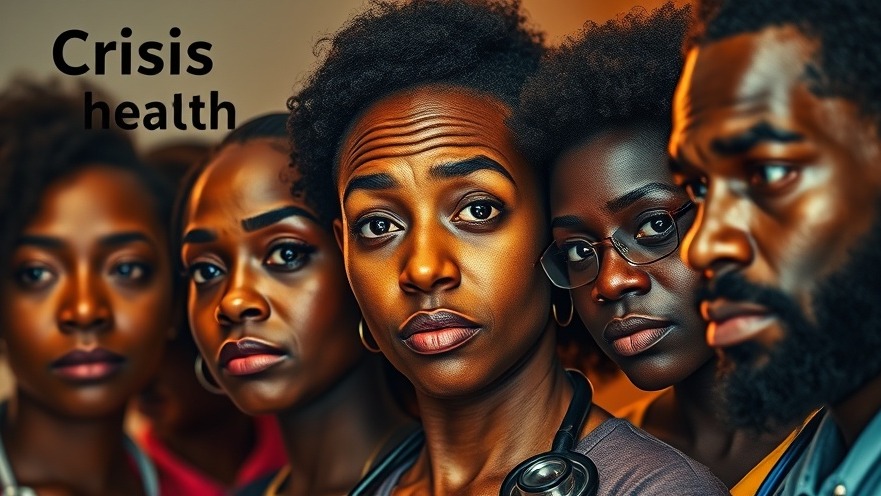
Understanding the Health Crisis Facing Black Americans.
In a deeply troubling statistic, nearly 20,000 Black Americans die each year from complications related to diabetes, further compounded by another 15,000 from obesity and thousands more from various forms of cancer. These alarming figures raise fundamental questions about health inequities and broader societal issues, exposing a health crisis that demands our immediate and earnest attention not only in Philly, but across the entire country.
In 'Why Black Americans Are Dying Early,' the discussion delves into shocking health statistics, prompting us to explore the underlying issues and propose meaningful solutions.
The Impact of Socioeconomic Factors on Health
To understand why Black Americans experience such alarming health disparities, we must examine the social factors at play. High rates of incarceration, single-headed households, and economic instability can play destructive roles in health outcomes. As societal conditions worsen, they oftentimes contribute to a cycle of health inequity that leaves communities vulnerable to chronic diseases.
The Misunderstanding of Health and Identity
There’s a dangerous narrative that ties the health crises in the Black community to supposed inferiority. This notion is not only false but harmful, perpetuating stigma rather than leading to actionable solutions. It ignores the significant role that systemic inequities play in health disparities, misrepresenting the reality that health issues stem from socio-economic conditions rather than an inherent flaw.
The Role of Food Choices in Preventing Disease
The conversation around health is incomplete without considering nutrition and lifestyle choices. Emphasizing healthy eating habits, such as a vegan diet, has gained momentum within this community, echoing historical movements toward dietary consciousness, notably dating back to the 60s and 70s. By choosing to become more aware of food sources and dietary impacts, individuals can reclaim their health. The journey toward healthier eating is not merely a choice; it’s an act of self-preservation.
Awakening to a Healthier Future
The emergence of health awareness and activism among Black Americans serves as a beacon of hope. Notable figures in nutrition, from Dr. Leila Africa to Dr. Sei, played pivotal roles during earlier generations in emphasizing the importance of diet and holistic wellness. Their contributions paved the way for a modern movement focused on health awareness and community support, highlighting that a comprehensive transformation requires engaging with local cultures and recognizing the intrinsic value of wellness.
Actionable Steps for Community Health Improvement
Moving forward, it is vital that individuals and communities recognize their role in promoting health. Begin with small, accessible changes: cook more meals at home, engage in local farmers' markets, and foster communal gardens to grow fresh produce. Education must also be at the forefront—engaging conversations about health should occur within families, schools, and communities, empowering the next generation to make informed choices.
Empowering Change Through Collective Awareness
Ultimately, improving health in the Black community comes down to reframing the narrative. By rejecting the idea of inferiority and embracing the concept of inner strength and divine potential, individuals can advocate for better resources, equitable healthcare, and a lifestyle centered around wellness and prevention. Each person's health journey contributes to the collective narrative, showcasing that there’s strength in community and knowledge is key to transformation.
If you're inspired to take charge of your health or help others in your Philly community to do so, consider seeking out resources and workshops focused on health awareness. Your proactive steps can lead to significant change—both personally and collectively.
 Add Row
Add Row  Add
Add 




Write A Comment